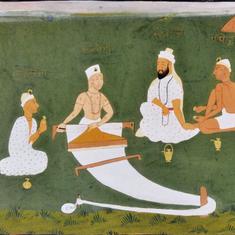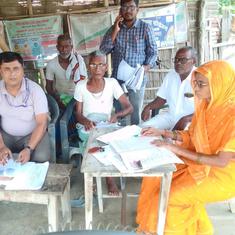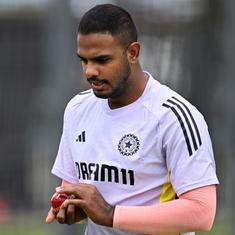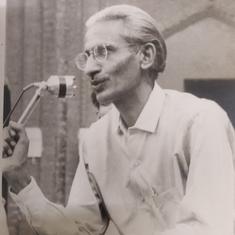One run. That was all that separated Rising Pune Supergiant from winning their maiden Indian Premier League title in just their second season. RPS, you could argue, were on top of Mumbai Indians for around 35 out of the 40 overs played in the final on Sunday. Unfortunately for the franchise, and rather inexplicably, they fell short at the final hurdle, unable to chase a rather sub-par target of 130.
This was not a collapse, like it had been for Mumbai, who were reduced to 79/7 in the 15th over after winning the toss and opting to bat, before all-rounder Krunal Pandya (47 off 38 balls) took them to a face-saving total of 129/8. When RPS lost Ajinkya Rahane (44 off 38 balls) towards the end of the 12th over of the chase, they were still well on top, needing 59 more to win from the last eight overs, with eight wickets in hand, at a required rate of just over seven.
Eventually, they ended up a run short and had four wickets to spare. They would perhaps have preferred to have been bowled out rather than end up short on such a low total, even if it was by a run. “It’s a hard one to swallow,” said captain Steve Smith, who top-scored with 51 off 50, after the match. “[Mumbai] were probably below par with 129. It was a tough wicket to get runs, everyone could see that. We just couldn’t get over the line. We had wickets in hand as well. It was only one or two good overs that we needed to get in front, so credit to them. They did a terrific job to restrict us.”
Leaving it too late
This was the second match in a row that RPS had left it a bit too late in their batting. In the first qualifier, also against Mumbai, they were at 121/3 in 18 overs after batting first. It took a rather late assault from MS Dhoni and Manoj Tiwary, who hit 41 runs in the last two overs, to take them to a competitive 162/4, which they defended rather easily.
On Sunday as well, when Dhoni walked out at No 4 at the fall of Rahane’s wicket to join Smith in the middle, RPS were cruising to their target. However, just 18 runs were scored in the next four overs, as the equation tightened to 47 required off 30 balls. Dhoni’s gamble did not pay off this time as he fell for a 13-ball 10 in the 17th over, before Smith, Manoj Tiwary and Dan Christian were unable to get their team past the line.

Should Pune have adopted a different approach considering they were chasing this time? Their head coach, Stephen Fleming, at least did not think so, saying that the Hyderabad pitch was on the slower side. “It was never going to be a wicket where you could blast your way to a win,” he said in his post-match press conference. “We played here against [Sunrisers] Hyderabad and found that as well. Just batting and taking it deep was our best opportunity. We just didn’t quite get across the line.”
Better than expected
Despite their defeat, RPS had punched well above their weight this season. They had a very good batting line-up, with Smith, Dhoni, Rahane, Faf du Plessis and all-rounder Ben Stokes, but were criticised, including by Scroll.in, for not having enough depth in their bowling attack, especially after R Ashwin pulled out of the tournament before the season began with an injury.
If you leave aside South Africa’s Imran Tahir, who was picked as an after-thought days before the season began, the rest of the RPS bowling line-up included Ashok Dinda, Shardul Thakur, Jaydev Unadkat, Lockie Ferguson, Dan Christian, Adam Zampa, and Washington Sundar. This bowling attack had no business to be in the IPL final. Yet, Unadkat ended up being the second-highest wicket-taker in the tournament, with 24 in 12 matches. He would perhaps had overtaken Bhuvneshwar Kumar (26 wickets from 14 matches) had he played as many games as the SRH bowler.
In the batting too, there were guys apart from the big guns who stepped up. Rahul Tripathi, 25, has been a revelation in his debut IPL season, with 391 runs in 14 matches. The seasoned Manoj Tiwary (324 runs in 15 matches) also chipped in with crucial knocks, despite being shuffled around quite a bit in the batting order through the season.
Stokes (316 runs and 12 wickets in 12 matches) stole most of the headlines, and man-of-the-match awards, but it was a collective effort that got RPS to the playoffs and then the final. They played the qualifier and final without Stokes and Tahir (and Du Plessis, but he featured in only two matches this season anyway), and still went within two runs of lifting the title. A different day, they could have been champions.

Despite their defeat, RPS can be proud of their season. It’s a different matter that whether they had won or lost, they would probably not even have been given a chance to defend their title next season. But they can fly back home with their heads held high.
“I am proud [of the team],” Fleming said. “I don’t think we’re the most skilled side of the IPL at all, but what we’ve had is some players stand up out of nowhere. We take real pride in that we’ve created an environment where some players have been able to excel. Jaydev has been extraordinary, even today, Tripathi is good, Tiwary is back, as well as the big stars stepped up at key times. Stokes was fantastic for us.”
He added, “I’m really proud of the combination we put together in the campaign we ran. We would have loved to put the icing on the cake, but it doesn’t change my feelings about the work we did during the year to get to this point. [It’s a] young franchise, [and to come up] against franchises that have had four years together is a tough ask. That’s why this year is so pleasing.”
PR disaster
Perhaps the only blips in what has been a memorable season for RPS have been some some of the off-field controversies that emerged through the campaign. RPS had not got off to a good start, PR-wise, by dropping an ‘s’ from their name and changing their captain from MS Dhoni to Steve Smith before this season began. That was to turn into a PR nightmare of sorts as, first, the franchise owner’s brother, Harsh Goenka, and then the owner himself, Sanjiv Goenka, both publicly compared Dhoni and Smith’s captaincies and cricketing minds, in effect belittling the former India captain. Both tried their best to backtrack by trying to hide all the evidence, but in today’s digital world it was impossible to cover up all their tracks.
Then, during Sunday’s final, the team’s Twitter handle tweeted a photo showing Mumbai Indians captain Rohit Sharma crying. The post had gone up at a time when Mumbai were in the midst of their collapse, but was a clear case of premature celebration, with even one innings of the match not over. The tweet was criticised on Twitter and eventually deleted, but RPS faced further humiliation when they ended up losing the match, as screenshots of the tweet were shared on social media.

It is rather unfortunate that a great season on-field has been blighted by a few completely avoidable gaffes by non-playing members of the franchise. You could put it down to teething problems, but then the franchise is not likely to get a chance to make amends with its contract ending after this season. With a seventh-place and runner-up finish in two seasons, RPS’ experiment with the IPL can probably be termed as a moderate success, which could have been better but for some foolish off-field controversies.










